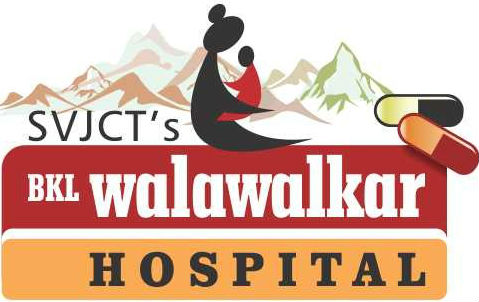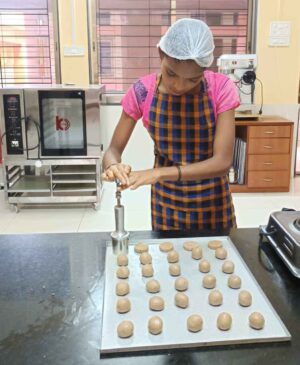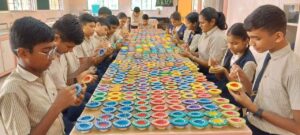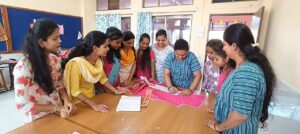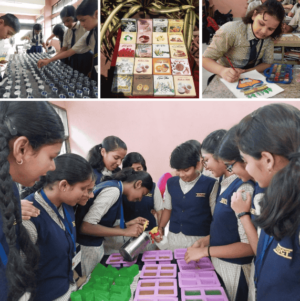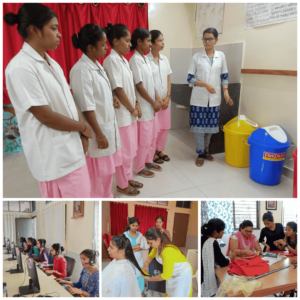Apart from health and education the trust is also devoted in the social and economic progress of the people in the region. Healthcare was now touching the poorest in the region but socially they were still lagging behind, because of which delivery of health-care was not complete. Community participation was poor. This thought gave birth to “REACHâ€, the Rural Empowerment and Community Health programme. It was inaugurated by Dr. (Ms) Kshama Mhetre, the National Director of Chinmay organization for Rural Development.
Working of REACH is unique. It establishes several groups in community to target different sections, creating a medium to discuss the problems of similar people thereby giving rise to indigenous solutions. The various groups are Mahila Mandals, Self help groups and Yuva groups. The project is implemented in Ratnagiri and Sindhudurg districts. In a nutshell the objective is to improve Woman’s social and economic status. Mahila mandals help them to acquire new skills which make them independent.
REACH project has helped us generate health awareness in the community and has made people concerned about their own health. The aim is to implement community based projects through community participation.
To empower women & make them capable, it is necessary for them to be at least partially financially independent in some way. Similarly a need was felt for getting the women together for them to share joys & sorrows, exchange ideas etc. Rural Empowerment And Community Health (REACH) program began in 2007 with this objective. Spreading awareness about health, hygiene and literacy along with learning activities which can generate income are the aims behind the formation of self-help-groups under the program. Today, 466 of such groups are in operation. Common farming is one of the successful activities of the group and all of them were overjoyed with the fruits of their labour. In addition, these women have learnt to prepare simple local delicacies, stitching clothes, manufacturing envelopes, bags from paper, manufacturing purses, simple jewellery etc. It has given them a source of income and hence made them financially capable to an extent.
They have also learnt the activities of the self-help-groups such as coming together for a meeting every month, paying contribution and keeping records of the same, taking loan from the group in case of urgent need, regular payment of interest etc.
NSDC Certified Skill Development Courses (Skill Development Centre, Dervan)
- Tailoring and Fashion designing (Basic and Advanced)
- Beauty Therapy (Basic and Advanced)
- Information Technology courses
- General Duty Assistant (Nursing Assistant)
Shri Vithalrao Joshi Charities Trust, Dervan and Vatsalya Trust, Mumbai have jointly established an ‘NSDC and Skill India Authorised Training Centre’ at Dervan (Skill Development Centre). While Vatsalya Trust, located at Mumbai is an Authorised Training Partner of NSDC (TP ID: TP150824); NSDC (National Skill Development Corporation) is under the Ministry of Skill Development and Entrepreneurship (MSDE), Government of India.
SVJCT is located in Dervan, a small village situated on the Mumbai-Goa highway near the town of Chiplun (Ratnagiri District) in KONKAN, Maharashtra. The villages in KONKAN are hotspots for malnutrition with scarce or almost-nil avenues for economic progress. The region records heavy rainfall but there is scarcity of water in other seasons, most of the land is hills with rocky-strata, unsuitable for cultivation, and individual land-holdings are small. Thus, farming is not their source of income. Migration to nearby cities for menial-jobs is the main option for sustenance.
The maximum impact of these challenges is borne by women and children who stay back in the village. Adolescent girls here are devoid of balanced nutrition, physical fitness, education and hence lack basic knowledge about their own health. There are many impediments to adolescent health including inadequate level of understanding of health needs, lack of training among health care providers resulting in negative attitude towards adolescence, customs cited against adolescent girls and women, insufficient interpersonal communication skill in working with young people.
To allow society a glimpse into the unconventional lives, to bring these shadowy girls of the KONKAN villages into limelight, and to make their eccentric lives better, a scientific study i.e. DERVAN cohort was established in 2019. DERVAN cohort is an adolescent-girls cohort designed with an evolutionary outlook to unfold interactions with biological parameters in developing adult NCD.
As the cohort progressed, the lack of skilling and economic opportunities in KONKAN was evident as migration in the cohort participants became noticeable. A survey of the cohort participants then, emphasized the fact that establishing a skill development centre with short-term courses would greatly benefit these local girls who wish to become economically independent but are unable to continue expensive long-duration courses. The participants in the survey, expressed their interests for learning Tailoring and Fashion Designing, Beauty Therapy and Information Technology courses. Their need for skilling was urgent and immediate and thus, a Skill Development Centre was established and inaugurated at Dervan in April, 2023 with support from Vatsalya Trust.
Exams are conducted by Vatsalya Trust as per the norms by NSDC and the certification is from the central government agency, NSDC. Girls and young women from rural KONKAN villages join these courses, get trained and are provided certificates after theory, oral and practical exams.
To encourage, support and motivate them to join these courses, SVJCT provides Free boarding and food at minimal Rate to these Trainee.
Multiple batches have passed out after completing the courses in Beauty (Assistant Beauty Therapist); Tailoring (Self-employed tailor – basic tailoring and Tailoring and Fashion designing – advanced tailoring); General Duty Assistant and many IT courses. Overall, >260 students have passed out. Utilising the skills acquired, many of them are either self-employed or have found employment opportunities, while a few of them continue their education while earning on a part-time basis.
